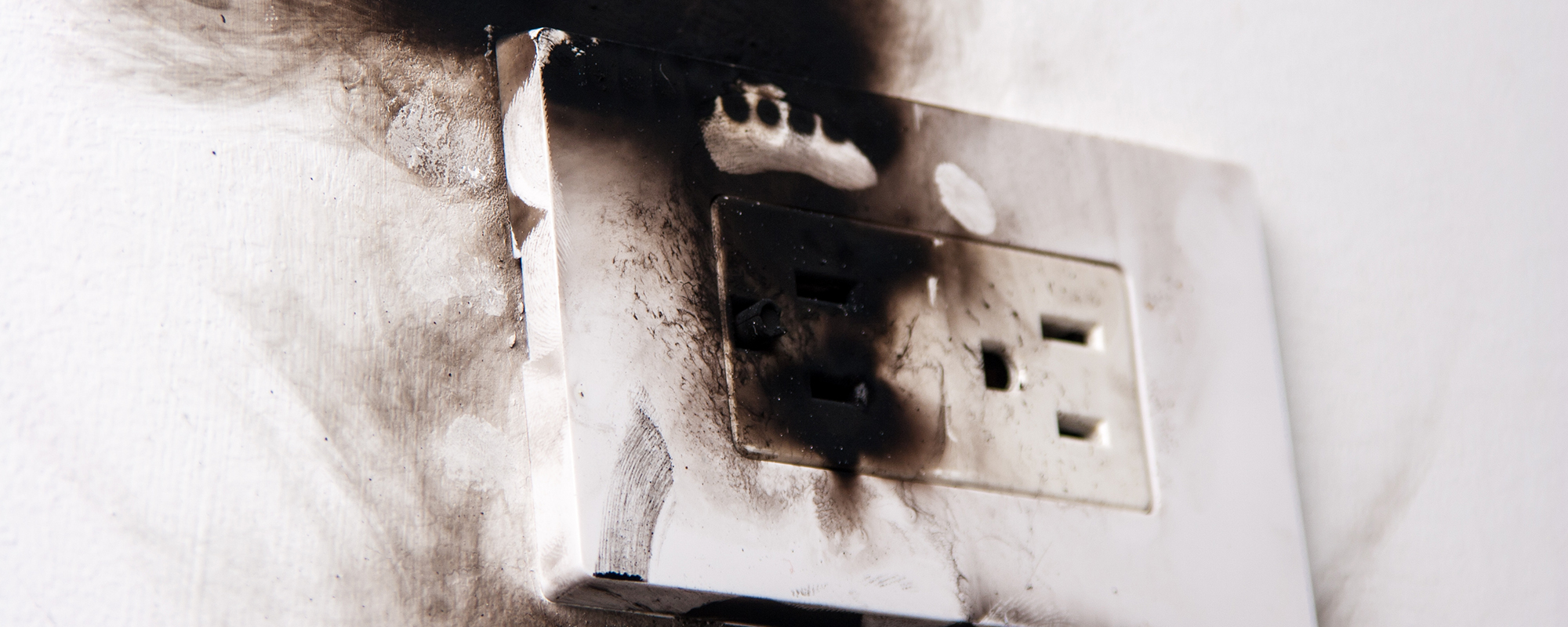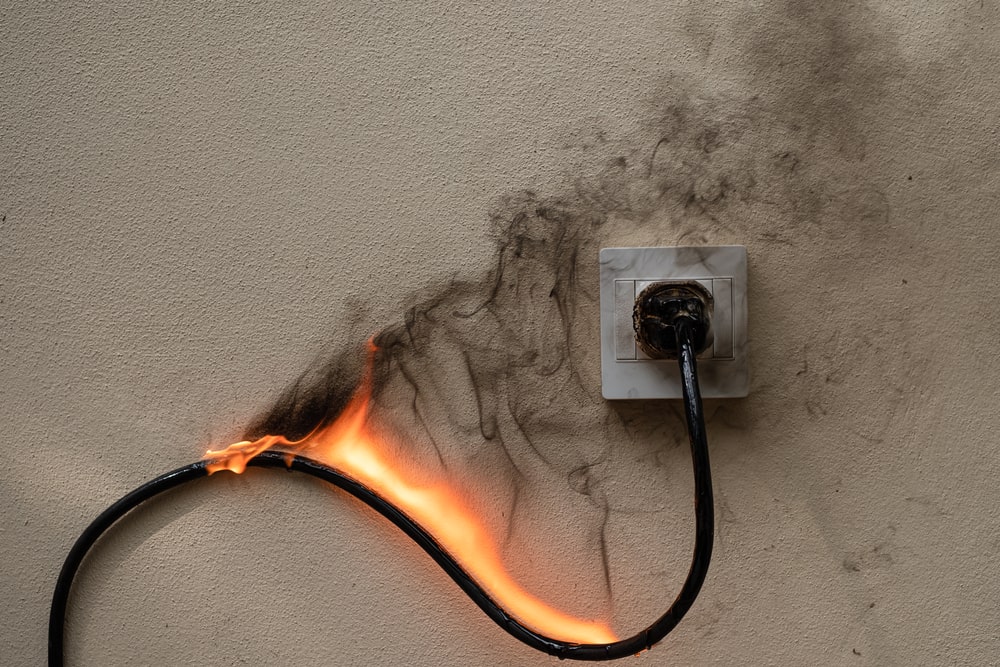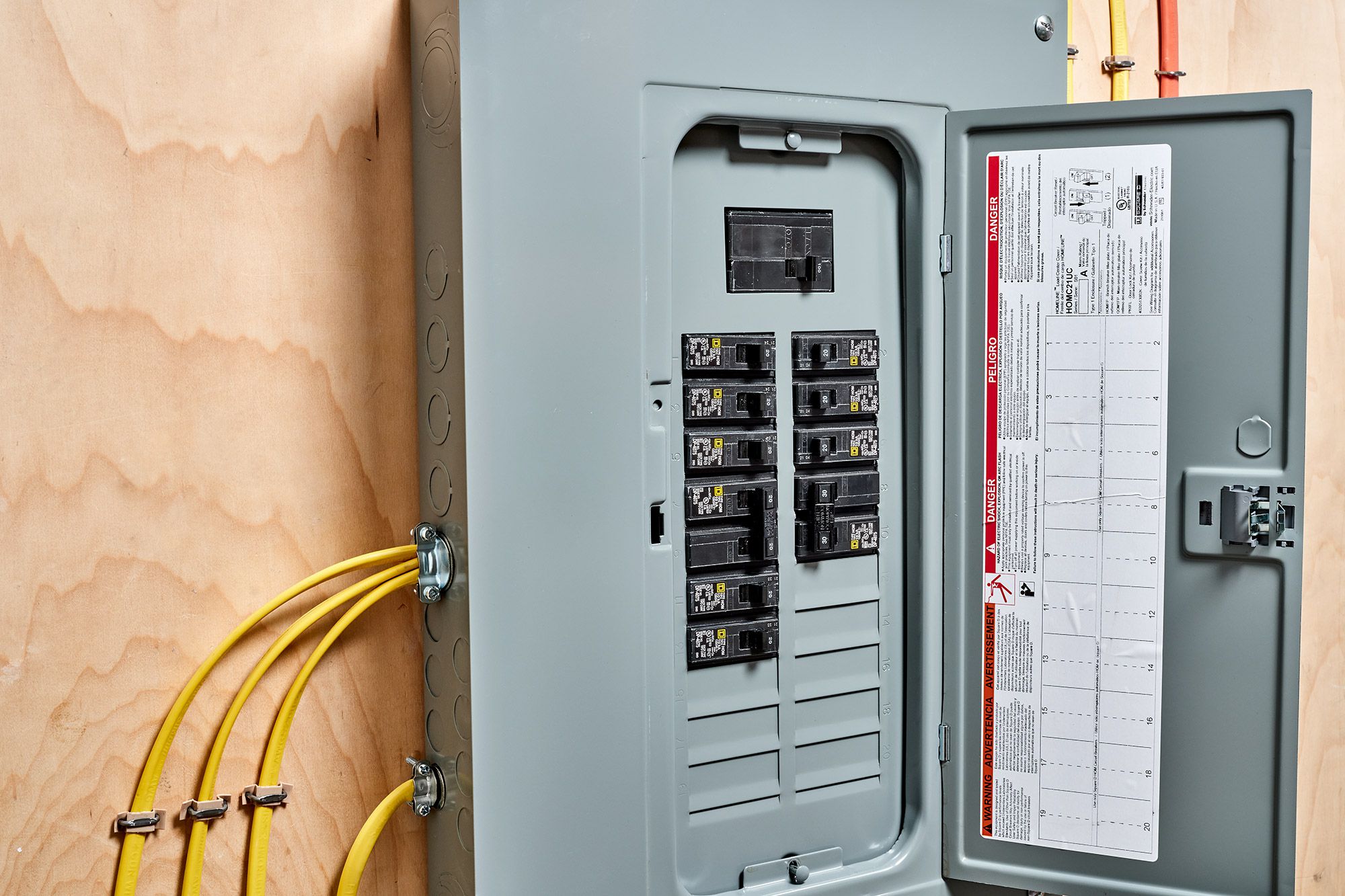
What Causes an Electrical Fire Smell in Your Home?
An electrical fire smell can be caused by several factors. Understanding the root cause of the burning smell is crucial for taking the right action. Here are some common reasons why you might notice an electrical fire smell in your home:
1. Overheated Electrical Wires
One of the most common causes of an electrical fire smell is overheated wiring. When electrical wires become overloaded or damaged, they can overheat, causing the protective insulation around the wires to melt or burn. This produces a burning plastic smell that is often associated with electrical fires. If you notice this smell, turn off the power to the affected area immediately and call an electrician.
2. Faulty Electrical Outlets or Switches
A malfunctioning electrical outlet or light switch can also be the source of an electrical fire smell. If an outlet or switch becomes loose or worn out, it may produce sparks, short circuits, or overheat, resulting in a burning smell. It’s important to stop using any outlet or switch that emits a burning odor and have it inspected by a professional.
3. Appliances Overheating
Another common cause of an electrical fire smell is overheating appliances. If an appliance is malfunctioning, it may draw too much power, causing the internal wiring to overheat. This can produce a burning smell similar to melting plastic or rubber. Common culprits include space heaters, dryers, and ovens.
4. Damaged Power Cords

Power cords that are frayed, damaged, or improperly grounded can overheat and create an electrical fire smell. If you notice any signs of wear or exposed wiring on your appliance power cords, stop using them immediately and replace the cord or appliance.
5. Electrical Panel Issues

Your home’s electrical panel is the heart of your electrical system, distributing power to various circuits. If the panel is overloaded or malfunctioning, it can cause the wires to overheat and emit a burning smell. An electrical panel issue should be addressed by a licensed electrician as soon as possible to avoid fire hazards.
For more information on electrical fire safety, visit the National Fire Protection Association’s guide to electrical fire safety.
What to Do If You Smell an Electrical Fire
If you detect an electrical fire smell in your home, it’s crucial to act quickly to prevent a potential fire. Follow these steps to ensure your safety:
| Step | What to Do |
|---|---|
| 1. Turn Off Power to the Affected Area | As soon as you notice the burning smell, turn off power to the affected area using the circuit breaker. This can help prevent overheating wires or electrical components from causing a fire. If you can’t locate the source of the smell, consider turning off the main power switch. |
| 2. Unplug Appliances | If you suspect that an appliance is causing the smell, unplug it immediately. Check for signs of damage, such as melted or frayed wires, and avoid using the appliance until it has been inspected by a professional. |
| 3. Inspect Outlets and Switches | Check all nearby electrical outlets and switches for signs of overheating, such as scorch marks, discoloration, or unusual heat. If you find anything suspicious, stop using the outlet or switch and call an electrician. |
| 4. Ventilate Your Home | Open windows and doors to allow fresh air to circulate and help dissipate any smoke or burning odors. This will also help reduce the risk of inhaling potentially harmful fumes from burning plastic or insulation. |
| 5. Call an Electrician | If you can’t find the source of the smell or if you suspect there’s a serious electrical issue, contact a licensed electrician immediately. An electrician can inspect your home’s electrical system and make any necessary repairs to prevent further problems. |
| 6. Call 911 If There’s Smoke or Fire | If you notice smoke or an actual fire, evacuate your home immediately and call 911. Never attempt to put out an electrical fire with water—use a fire extinguisher rated for electrical fires (Class C) if it’s safe to do so. |
Preventing Electrical Fires in Your Home
To avoid future electrical fire smells and the risks they pose, it’s important to practice electrical safety and maintain your home’s electrical system. Here are some tips for preventing electrical fires:
1. Inspect Electrical Outlets and Wiring Regularly
Check your electrical outlets, light switches, and power cords regularly for signs of wear and tear. If you notice any damaged outlets, frayed cords, or flickering lights, have them inspected and repaired by an electrician.
2. Avoid Overloading Circuits
Plugging too many devices into one outlet can overload the circuit, causing overheating and increasing the risk of an electrical fire. Use power strips with built-in surge protectors and avoid plugging multiple high-wattage appliances into the same outlet.
3. Use Appliances Properly
Always follow the manufacturer’s instructions when using appliances, and avoid using damaged or malfunctioning devices. Unplug appliances when not in use, especially if they are prone to overheating.
4. Replace Old or Damaged Electrical Components
If your home has outdated or damaged wiring, electrical panels, or circuit breakers, consider upgrading them to meet modern safety standards. Older electrical systems may not be equipped to handle the demands of today’s appliances and electronics.
5. Install Smoke Detectors
Smoke detectors can provide early warning of a fire, giving you time to take action. Install smoke detectors in key areas of your home, including near the kitchen, bedrooms, and electrical panel, and test them regularly to ensure they are working properly.
For more tips on electrical fire prevention, visit this NFPA guide on electrical fire safety.
FAQ
| Question | Answer |
|---|---|
| What does an electrical fire smell like? | An electrical fire often smells like burning plastic, rubber, or insulation. The smell can vary depending on the source, but it’s typically strong and acrid. |
| What should I do if I smell something burning in my home? | If you smell something burning and suspect it’s electrical, turn off the power to the affected area using the circuit breaker and unplug any appliances. If you can’t locate the source of the smell or notice smoke, evacuate your home and call 911. |
| Can an electrical fire start without warning? | Yes, electrical fires can start without warning, especially if there are hidden issues like damaged wiring or overloaded circuits. It’s important to address any electrical issues in your home promptly to prevent fires. |
| How can I prevent electrical fires in my home? | To prevent electrical fires, regularly inspect outlets and wiring, avoid overloading circuits, unplug appliances when not in use, and upgrade old electrical components. Installing smoke detectors can also provide early warning of a fire. |
| When should I call an electrician? | If you smell an electrical fire, notice unusual heat from outlets or switches, or see sparks, call a licensed electrician immediately. Electrical issues should be addressed by professionals to ensure your home’s safety. |
If you’re dealing with lingering smoke odors or fire damage, contact Citywide Mold Mitigation for professional odor and damage remediation services.

